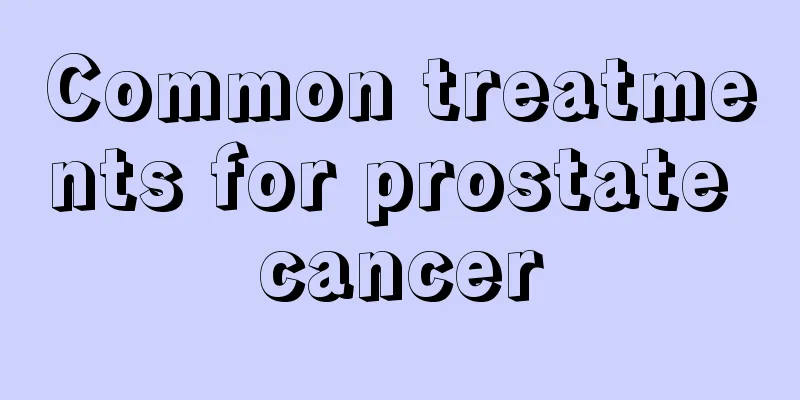What are the symptoms of mania? Does it have an impact on thinking?

|
Speaking of mania, I believe everyone's first reaction is a very manic mood. In fact, mania can happen around us. Many people inadvertently cause themselves to suffer from mania. Mania is not moody or very serious beating and scolding people. The manifestations of mania will not only appear in speech, thinking, mood changes, and physical symptoms. Because the condition is relatively mild, many manifestations of mania are not obvious, and some people think it is a personality problem. In fact, mania is a mental illness. The patient looks exactly the same as a normal person. Only by deeply studying the patient's psychology and seeing more psychologists can we truly know whether these symptoms are manifestations of mania. Mainly manifested in: (1) Language and thinking: Manic patients usually have speech that cannot keep up with the speed of thinking, often manifested as increased speech, incessant talking, gesticulation, and excitement. Even if they have a dry mouth and hoarse voice, they will continue to talk. However, the content of the speech is superficial, messy and unrealistic, often giving people the feeling of talking nonsense. (ii) Mood changes: Manic patients have more obvious mood changes: when their emotions are high, they tend to overestimate themselves, and appear arrogant, conceited, overbearing, and overbearing. Exaggerated ideas may arise, thinking that one is the greatest, the most capable, and the richest in the world. It may even reach the point of exaggeration or delusion of wealth, but the content is not absurd. Sometimes delusions of relationship and persecution may also occur, which are mostly secondary to high emotions and generally do not last long. The patient appears relaxed, happy, cheerful, self-satisfied, and joyful, as if he has no worries in the world. High spirits are often vivid, clear, in harmony with inner experience and surroundings, and are contagious. Patients often describe themselves as "optimists", "very happy", and "life is full of sunshine and colorful". Emotional reactions may be unstable and irritable. The patient may become furious over trivial matters, or if his opinions are rejected or his demands are not met. He may exhibit destructive or aggressive behavior. Some patients may also experience short-term bad moods during the manic phase. (III) Physical symptoms: The physical symptoms of manic patients are as follows: they are full of energy, so they rarely complain of physical discomfort. They often have a ruddy complexion and bright eyes. Physical examination may reveal slightly dilated pupils, accelerated heart rate, and symptoms of sympathetic hyperactivity such as constipation. Other symptoms During a manic episode, the patient's active and passive attention are enhanced, but they cannot last long and are easily attracted by things around them. Moreover, the increase in daily activities shows that they are energetic, have a wide range of interests, and move quickly and agilely. They are obviously more active and cannot wait. They are busy all day long, but they often fail to achieve anything they do. It is particularly pointed out that in terms of verbal expression, manic patients talk incessantly, which can cause dry mouth and tongue, and dehydration may occur when they are extremely excited. Therefore, when caring for manic patients, it is important to note that the amount of food they eat is generally more than usual, and they should be encouraged to drink more water. In terms of personal hygiene, such as assisting with washing, bathing, shampooing, etc., supervising the changing of clothes, keeping the bed clean, and assisting in the care of female patients during menstruation. In addition, it is also important to note that excited and restless patients often "forget to eat and sleep" because of "being busy", and when they are too hungry, they will overeat and drink, and do not pay attention to food hygiene. Therefore, it is especially important to do a good job of dietary care for patients and urge them to eat on time. It is best to let them eat alone during meals to avoid talking too much and distracting their attention. |
<<: Is wearing a postpartum body shaping garment effective?
>>: How to use sunscreen to achieve good sun protection effect
Recommend
What to do with ovarian cancer
Ovarian cancer is a malignant tumor that is not e...
What are the effects and functions of fried Vitex rotundifolia? Can it cure colds?
In current clinical practice, fried Vitex rotundi...
What is tartaric acid
When it comes to tartaric acid, many people may h...
Is bladder cancer easy to treat?
Is bladder cancer treatable? Bladder cancer may o...
Standards for obesity
More and more people have realized the serious ha...
What is the cause of chest pain when coughing
Many people experience coughing while having a co...
How do patients with esophageal cancer eat?
Diet is a critical factor for patients with esoph...
How to make up for staying up late
Staying up late is actually very harmful to physi...
Does skin cancer cause itchy skin?
Skin cancer is a malignant tumor and is not easy ...
Why do pimples appear on lips
Lips are one of the essential and important organ...
A series of common symptoms of gastric cancer patients
Gastric cancer is a relatively serious tumor dise...
Key points for the diagnosis of lymphoma
The key points for diagnosing lymphoma are as fol...
What kind of mask is good
The smog is getting more and more serious now. We...
What are the techniques for finding blood vessels when drawing blood?
I believe many people have had this experience. W...
Tips on how to wash yellowed quilt covers
For some sheets and quilt covers that have been us...









